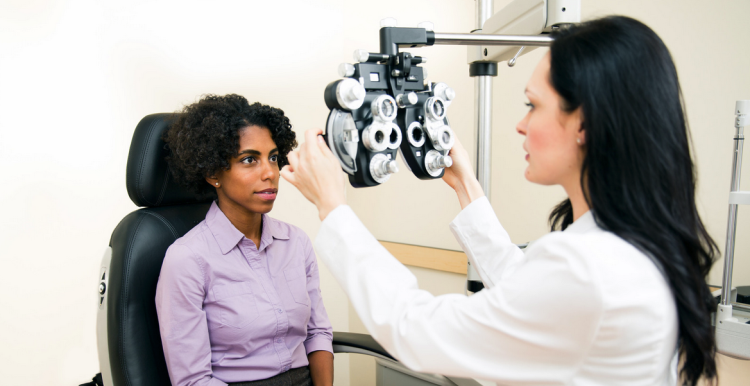A strain on sight: Waiting for NHS specialist eye care
Healthwatch England's new report warns long waits for eye care are having a huge impact on people's daily lives.

Eye care is the busiest outpatient speciality in the NHS in England, and with an ageing population, demand is set to grow further.
According to NHS statistics, of the nearly 59,000 people currently waiting for specialist eye care as of December 2024, only two thirds (66.8%) have been waiting less than the 18-week target set by Government, compared to a target of 92%.
The Healthwatch England report focuses on 1,051 people who responded to questions in a survey about waiting for secondary eye care and it shows the impact on people of waiting for eye care.
Key findings in the research
- Getting referred for specialist eye care can be challenging. The survey of those currently waiting shows that almost a quarter (22%) had to have multiple appointments before being referred.
- Many people experience long waiting times for specialist eye care. As of December 2024, only two thirds of those waiting have been waiting less than the 18-week target set by Government.
- Of those currently waiting for treatment, 70% said they have noticed some deterioration in vision.
- Over half of those currently waiting said the wait had affected their ability to work (54%) and carry out daily household tasks (52%).
Key recommendations
The NHS should publish ophthalmology waiting list data by condition.
- The NHS currently publishes waiting list data for all ophthalmology treatments together.
- Condition-specific data would allow increased scrutiny of waiting time progress for the most serious conditions, and ensure appropriate allocation of resources.
The Government should make greater use of optometrists to help cut waiting times and provide more treatment and aftercare closer to home.
- Optometrists in the community are highly skilled and in every locality in England.
- Respondents to our survey supported making better use of their skills, which could improve patient experience.
Improved support and communication for patients while they wait.
- Eye Care Liaison Officers, (ECLOs) provide vital support to those diagnosed with a condition that affects their sight.
- In England, the current ECLO coverage in the top 150 ophthalmic centres is 71%.
- The NHS should ensure trusts and other commissioners and funders of eye care services support the increase and sustainability of the funding of this programme alongside RNIB, with universal access as the ultimate aim.


